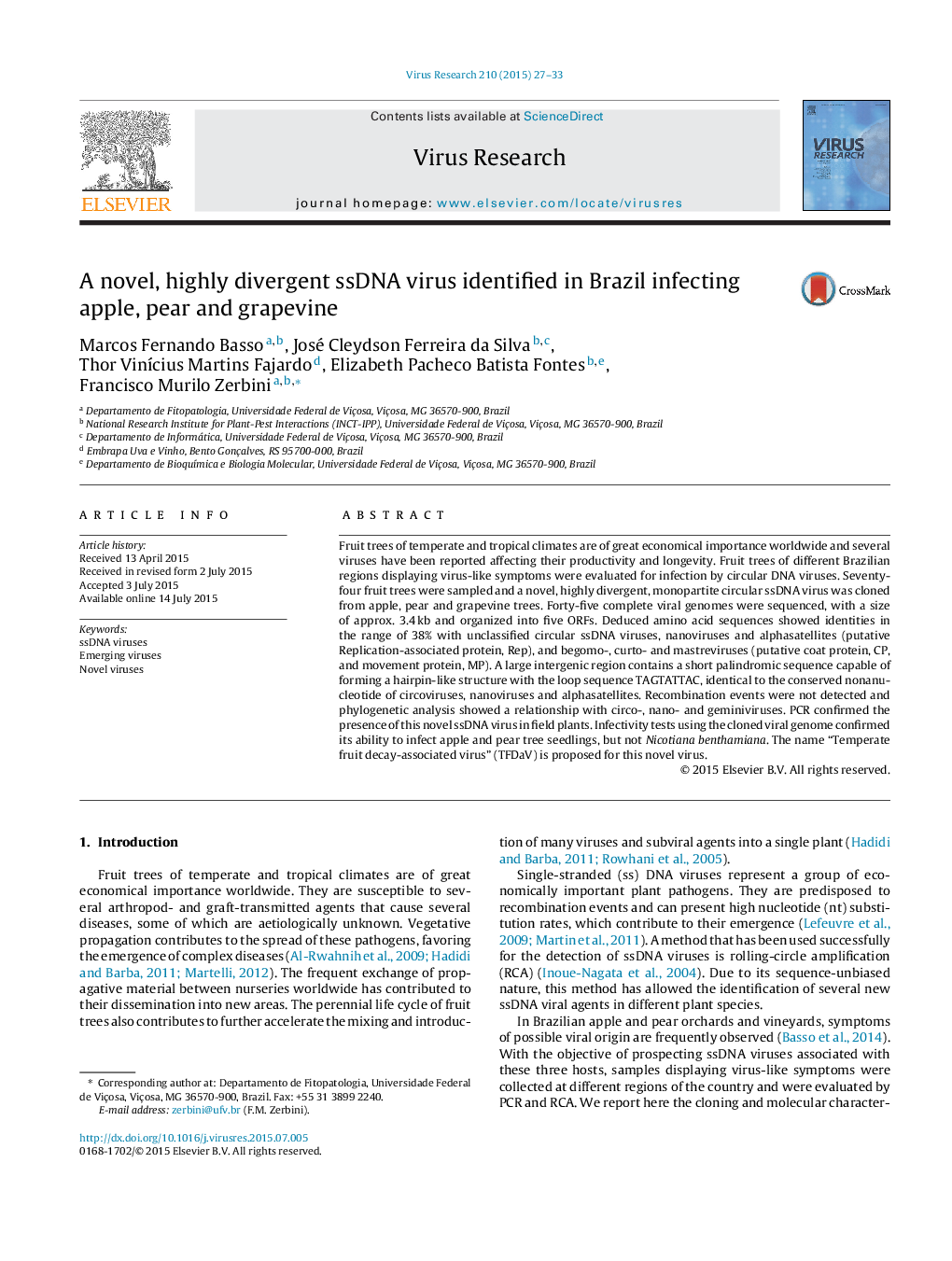| Article ID | Journal | Published Year | Pages | File Type |
|---|---|---|---|---|
| 3428027 | Virus Research | 2015 | 7 Pages |
•Novel ssDNA virus detected in three different species of fruit trees in Brazil.•Genome of the new virus is distinct from those of all other known ssDNA viruses.•The genome was cloned and infectivity was demonstrated in apple and pear trees.
Fruit trees of temperate and tropical climates are of great economical importance worldwide and several viruses have been reported affecting their productivity and longevity. Fruit trees of different Brazilian regions displaying virus-like symptoms were evaluated for infection by circular DNA viruses. Seventy-four fruit trees were sampled and a novel, highly divergent, monopartite circular ssDNA virus was cloned from apple, pear and grapevine trees. Forty-five complete viral genomes were sequenced, with a size of approx. 3.4 kb and organized into five ORFs. Deduced amino acid sequences showed identities in the range of 38% with unclassified circular ssDNA viruses, nanoviruses and alphasatellites (putative Replication-associated protein, Rep), and begomo-, curto- and mastreviruses (putative coat protein, CP, and movement protein, MP). A large intergenic region contains a short palindromic sequence capable of forming a hairpin-like structure with the loop sequence TAGTATTAC, identical to the conserved nonanucleotide of circoviruses, nanoviruses and alphasatellites. Recombination events were not detected and phylogenetic analysis showed a relationship with circo-, nano- and geminiviruses. PCR confirmed the presence of this novel ssDNA virus in field plants. Infectivity tests using the cloned viral genome confirmed its ability to infect apple and pear tree seedlings, but not Nicotiana benthamiana. The name “Temperate fruit decay-associated virus” (TFDaV) is proposed for this novel virus.
